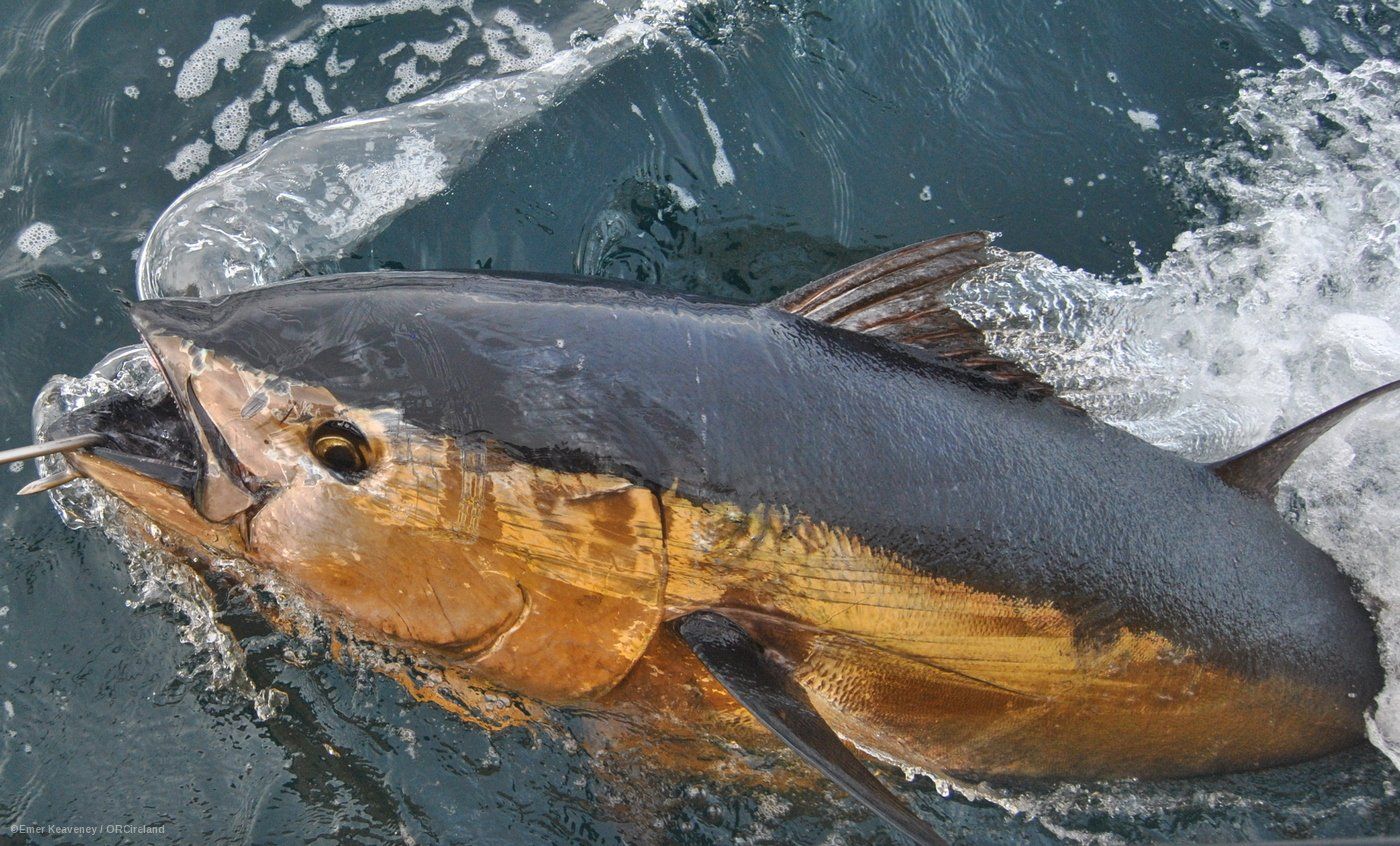Atlantic bluefin tuna presence around the British Isles has been explained in a new study.
New research has concluded that rising sea temperatures may be the cause of Atlantic bluefin tuna's presence in U.K waters. The disappearance of bluefin tuna and their comeback in recent years has been studied in depth by Drs. Robin Faillettaz, Eric Goberville and Gregory Beaugrand, of the University of Lille, France and U.K. colleagues Dr. Richard Kirby and the results are fascinating.
The new study published in PLOS ONE shows that the changes in distribution of Atlantic bluefin tuna ( Thunnus thynnus ) can be explained by hydroclimatic variability as a result of a northern hemisphere climatic oscillation known as the Atlantic Multidecadal Oscillation (AMO). The AMO can alter sea temperatures through positive and negative phases. Scientists examined a long term dataset of changing abundance and distribution of the endangered fish in the Atlantic ocean over a 200 year period to reach this conclusion. Combining two different modelling methods, one focusing on the intentisty of catches over time and another on the distribution of bluefin's occurrence i.e. when the fish was caught or observed they found that the AMO was a major driving force in influencing it's abundance and distribution.
Lead researcher of the study, Dr. Faillettaz has been quoted saying "The ecological effects of the AMO have long been overlooked and our results represent a breakthrough in understanding the history of bluefin tuna in the North Atlantic."
The AMO has been shown to affect complex atmospheric and oceanographic processes in the northern hemisphere, including the direction of ocean currents, drought on land and even the frequency and intensity of extreme weather events such as hurricanes. The AMO is cyclical and reverts from positive to negative phases every 60 to 120 years, causing an ocean basin wide shift in the distribution of Atlantic bluefin tuna.
Warm phases in the AMO oscillation has resulted in Atlantic bluefin tuna foraging as far north as Greenland, Iceland and Norway, virtually disappearing completely from the south and central Atlantic, as also seen back in the mid 1990's. In the middle of the 20th century, in a warm phase period, bluefin tuna were commercially fished in the North Sea, a fishery that nearly rivaled that seen in the Mediterranean. In comparison, during a cold phase of the AMO, the fish had a more southerly distribution, found primarily in the western, central and southern Atlantic as seen between 1965 and 1995. A prime example of the effects of the AMO on the species distribution and abundance was seen with the collapse of the Nordic tuna fishery in 1963 after tuna left the waters of the North Sea and did not return to the northern Atlantic until the late 1990's, when it began to be caught around Ireland and the British Isles.
Scientists have now predicted that bluefin tuna will continue their migration into the northern hemisphere until the AMO reverses into a cold phase, yet highlight the effect of global warming on sea temperatures that make responses of the fish to changes in the AMO uncertain in the coming years. In addition the AMO was also found in this study to affect the recruitment of Atlantic bluefin tuna (how many juvenile tuna make it to adulthood).
Currently tuna stocks in the north Atlantic face a number of threats including overfishing and political mismanagement as these are highly mobile species whose distribution may spread across international waters and into to various Exclusive Economic Zones. The uncertainty of tuna's reaction to fluctuations in the AMO also add to the concern for sustainable management in fisheries.
References:
Failattaz, R., Beaugrand, G., Goberville, E., Kirby, R.E., (2019). Atlantic Multidecadal Oscillations drive the basin-scale distribution of Atlantic bluefin tuna. Science Advances,
5, no. 1.
Trenberth, K.E. and D.J. Shea (2006): Atlantic hurricanes and natural variability in 2005. Geophysical Research Letters
33
, L12704, doi:10.1029/2006GL026894 [ pdf
]
SHARE THIS ARTICLE















